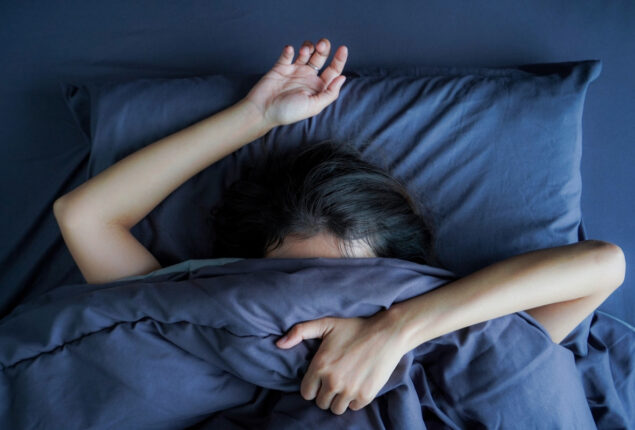Exercise is more effective than medication for Mental Health: Study
Physical activity is 1.5 times more effective at treating depression. Than psychotherapy...

Either excessively or insufficiently sleep can make you sick: Study
Getting a good night’s sleep can help with a lot of things, but scientists have now found new evidence that getting enough sleep may make you less likely to get sick. Researchers at the College of Bergen selected clinical understudies working in specialists’ medical procedures to distribute short polls to patients, getting some information about rest quality and late contaminations. Patients with chronic sleep issues were more likely to require antibiotics, and those who reported sleeping insufficiently or too much were also more likely to report a recent infection, according to their findings.
The study’s corresponding author, Dr. Ingeborg Forthun, stated, “Most previous observational studies have looked at the association between sleep and infection in a sample of the general population.” We wanted to check this connection with patients in primary care, where we know that sleep problems are more common than in the general population.
There is already evidence that having trouble sleeping raises the risk of infection: In a previous study, healthy sleep was associated with a lower risk of getting a cold in people who had been intentionally infected with the rhinovirus. Sleep disturbances are common and treatable, and if a connection to infection and a mechanism can be established, it may be possible to reduce antibiotic use and prevent infections from occurring in the first place. However, experimental studies cannot replicate actual conditions.
Forthun and her colleagues distributed a questionnaire to medical students and instructed them to distribute it to patients waiting in the general practitioners’ offices where the students were employed. In Norway, 1,848 surveys were collected. In the surveys, respondents were asked about their sleep quality, including how well they sleep, how long they usually sleep, and when they prefer to sleep. They were also asked if they had been sick or taken antibiotics in the past three months. A scale for identifying cases of chronic insomnia disorder was also included in the survey.
Patients who reported sleeping less than six hours a night were 27% more likely to report an infection, while those who reported sleeping more than nine hours were 44% more likely to report one, according to the researchers. Chronic insomnia, which requires less than six hours of sleep, also increased the likelihood that you will require an antibiotic to treat an infection.
According to Forthun, “The higher risk of reporting an infection among patients who reported either short or long sleep duration is not that surprising given that we know that having an infection can cause both poor sleep and sleepiness.” However, the fact that people with chronic insomnia disorders are more likely to get sick suggests that this relationship also goes in the opposite direction; an infection can spread more easily if you don’t get enough sleep.”
The study design allowed for the collection of data from a large study group experiencing real-world conditions, despite the fact that there was some potential for bias due to the fact that people’s recall of sleep or recent health issues may not always be perfect and no clinical information was collected from the doctors who subsequently saw the patients.
Forthun stated, “We don’t think this can fully explain our results.” “We don’t know why the patients visited their GPs, and it could be that an underlying health problem affects both the risk of poor sleep and the risk of infection.”
She went on to say: Patients in primary care have a high prevalence of insomnia, but general practitioners fail to recognize it. Patients and general practitioners alike require heightened awareness of the significance of sleep for patients’ health and general well-being.”
Catch all the Health News, Mental Health News, Breaking News Event and Latest News Updates on The BOL News
Download The BOL News App to get the Daily News Update & Follow us on Google News.